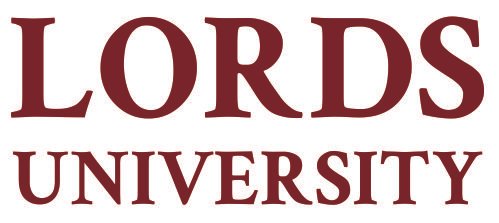Rights in Action: Nukkad Natak to Raise Human Rights Awareness
The Human Rights Club at Lords University organized “Nukkad Natak” on “Human Rights in Society” on August 24th, 2024, and jointly celebrated the “Krishna Janmashtami”. This event was inaugurated by the Vice-Chancellor, Professor B. S Sharma, and Research Director, Dr. Sneh Saiwal, by performing the ceremonial lighting of the lamps. The event was coordinated by Dr. Sneh Lata and Dr. Rashmi Somvanshi(in charge of the Human Rights Club).
The event was organized to encourage awareness about human rights issues and encourage society to change through thought-provoking and dramatic Nukkad Natak for impactful performance. Children presented several performances during the event, including plays, music, and speeches. The ambition of the plays was to convey one simple message, that everyone deserves equal treatment in our society. In particular, women should be able to receive education and the opportunity to build their careers.
In the celebration of Krishna Janmashtami, students depicted every aspect of Shri Krishna’s life. They performed songs, plays, and beautiful dance performances. It was a wonderful series of performances that students performed. The program was hosted by Jayant and Manvi Aggarwal.
The event was attended by several faculty members, Dr. Priyanka Sharma, Prateek Bindlis, Leena Sharma, Dr. Richa Varshney, Dr. Parul Singh, Dr. Suchitra Dagar, Rahul Saini, Ashwini Kumar Sharma and others. The event was aimed to highlight various human rights violations and foster a deeper understanding of the importance of upholding and protecting these rights within our communities. In today’s world, powerful storytelling is a great way to make people understand the noble society's messages and thus Lords University resorted to Nukkad Natak.
History of Nukkad Natak
Nukkad Nataks find their origin in the early performances in the Indigenous folk theatricals. Earlier in the ancient civilizations, nukkad nataks, in the form of theatrical performances, were prevalent. These performances would also take place in the streets, and it gradually became a popular way amongst people to communicate and entertain. The actors would indulge in comedies, tragedies, and social plays to depict the current societal situations.Prior to this, “tamasha" was a form of play that was performed, attributed to being the most ancient form of dramatic plays/ Nukkad Nataks. Tamasha was most famous for dramatic speeches, dances, and plays. Later in the 19th century, Nukkad Natak again came into light as a tool of social and political protest during the British colonial era. It became a powerful tool to not only build an association with our magnificent history but also acquire a way to communicate and express ourselves.
Current scenario of Nukkad Natak
Even in the contemporary world, Nukkad Natak continues to stay relevant and, in fact, its popularity is increasing day by day. As we are becoming more and more globalized, there are numerous efforts by people in the country to connect with their roots. But more than this, Nukkad Natak today has become a big tool for people to have and voice their opinions regarding wrongs in society like female foeticide, AIDS, family planning and corruption. These plays have simple concepts to promote social awareness.
The fact that Nukkad Natak can be performed just anywhere and does not need huge places or a good amount of time or resources to prepare, makes it a highly accessible and effective form of theatre. This is one reason that most universities have Nukkad Natak clubs which provide students with an avenue to express themselves through this art. Similarly, Lords University is always active when it comes to spreading awareness among its students, professors and everyone around about social issues.
